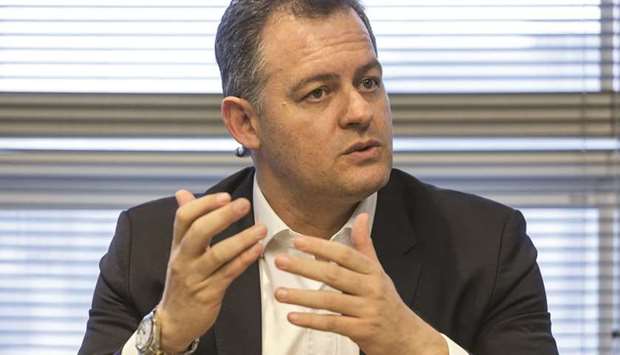Citi Private Bank expects to add 10 bankers, bringing the team to 25, according to Cesar Chicayban, who runs the business in Brazil. The company, which services 550 Brazilian families with at least $10mn to invest with the firm, has hired five bankers in the past year in Sao Paulo and New York, including Vivien Dias, who worked more than 10 years at JPMorgan Asset Management.
“We want to keep delivering for the next five years the same double-digit robust growth we had in the past two,” Chicayban said in an interview.
Citigroup sold its retail division in Brazil to Itau Unibanco Holding SA in October for an announced value of 710mn reais ($175mn), as part of chief executive officer Michael Corbat’s plan to cut costs and boost returns. The private-banking business, which wasn’t included in the deal, was restructured to eliminate services such as local bank accounts and credit cards.
The unit also doubled its minimum asset level invested at the bank from a previous $5mn, following new global standards at the company.
The bank let go about 50 clients in the process of restructuring, according to Chicayban. “We’re now servicing a very exclusive group of people with global needs; we are almost a private-banking boutique,” Chicayban said. The New York-based company has operations in 98 countries, participating in all major markets, “and that has a cost,” he said.
New regulations have also increased control and compliance expenses for the private-banking business, he said, another reason Citigroup decided to narrow its focus.
The bank kept offering onshore and offshore investment-advisory and credit services to rich Brazilian individuals, while banking and wealth planning are offered only outside the nation, he said. Citigroup has teams dedicated to Brazilian clients in Miami, New York, Geneva, London, Sao Paulo and Rio de Janeiro, according to Chicayban, with a total of 60 employees.
Prospects for the business remain strong, especially after tax-amnesty programs created what Chicayban called a “flight to quality” movement.
“When the wealth wasn’t legitimised, many families kept their money in smaller banks, in which the main concern was confidentiality,” he said. “Now those clients can move their assets throughout the world and are seeking good advice, assistance and international platforms.”
Brazil passed a bill in 2016 allowing citizens and companies to report undeclared assets held abroad. After paying a fine and taxes, they could either keep those assets outside the country or bring them home. The program, which ended last year, uncovered about $54bn in foreign deposits, according to Brazil’s tax authority. Citigroup over the past two years has attracted new wealth from Brazilians coming from 15 other banks, Chicayban said, adding that the bank now works with 100 family offices, a number that tripled over the past five years.
Competition from other international banks has sparked consolidation in the industry. Last year, UBS Group AG scooped up the firm that was Brazil’s biggest independent multifamily office at the time, Consenso Investimentos. In January, Julius Baer Group Ltd said it acquired 95% of Sao Paulo-based Reliance Group, also one of the biggest independent family offices in the nation.
Citigroup will keep growing by acquiring teams of bankers from competitors while deepening relationships with existing clients, he said, adding that the bank’s willingness to extend credit will also help.
“After 2009, many families bought real estate in the US and Europe and now want to use those properties to raise cash,” he said, adding that art, other investments and planes can all be used as collateral. Citigroup also has the ability to offer credit with no collateral at all, depending on the client. It’s in the middle of financing a client’s acquisition of a $30mn property, and will handle about 40 such loans this year, he said.
The bank, which has roughly $460bn in wealth under management worldwide, sold its fund-management business to Legg Mason Inc in 2005.
“So we don’t have any conflict of interest, no obligation to steer investments to our own funds,” Chicayban said. “We can suggest to clients the best products from any asset-management firm,” he said, adding that the the bank charges “only one, very transparent fee.”

